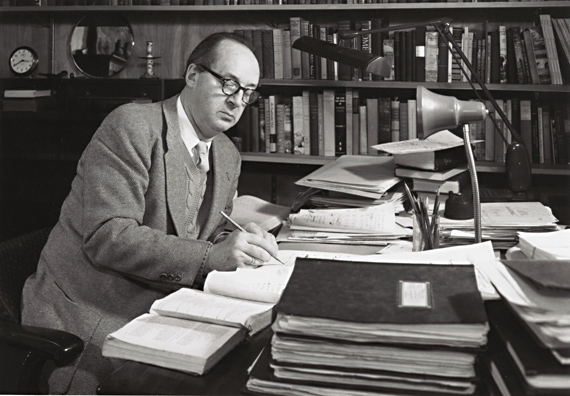 |
| Nabokov writing in his office. |
Nabokov can be compared to Edgar Allan Poe through one similarity: they both think the way a piece of writing sounds is of high importance. Nabokov's use of long sentences and many adjectives can be seen in quotes such as this one.
"We had been everywhere. We had really seen nothing. And I catch myself thinking today that our long journey had only defiled with a sinuous trail of slime the lovely, trustful, dreamy, enormous country, that, by then, in retrospect, was no more than a collection of dog-eared maps, ruined tour books, old tires and her sobs in the night—every night, every night—the moment I feigned sleep."
The way Lolita presents humor is also unusual. Since the novel has a dark undertone, it had to present humor in a different way so that it doesn't clash with the conflict of the novel. Humor in Lolita is presented through insults, mainly from Humbert to Charlotte.
Lolita is also a deceptive novel. This is elaborated more on this blog post. Nabokov uses narration to get the reader on Humbert's side and to get the reader to feel sympatetic towards him.